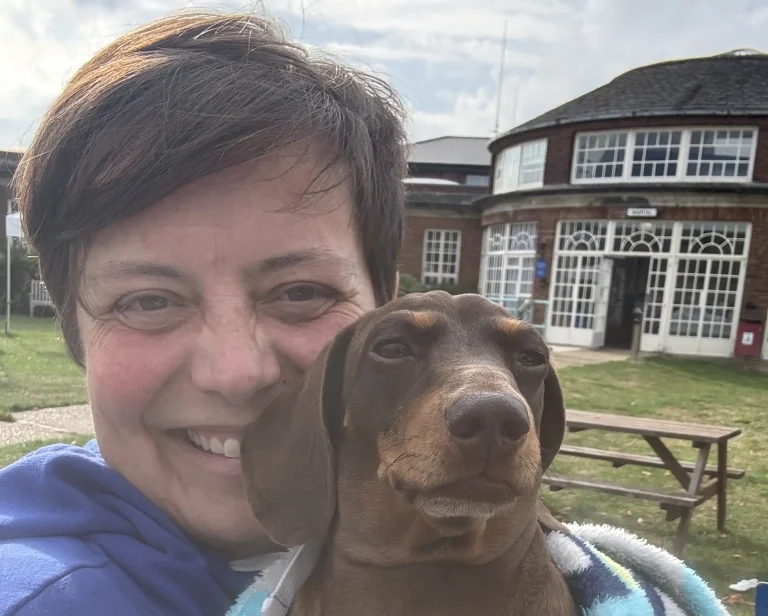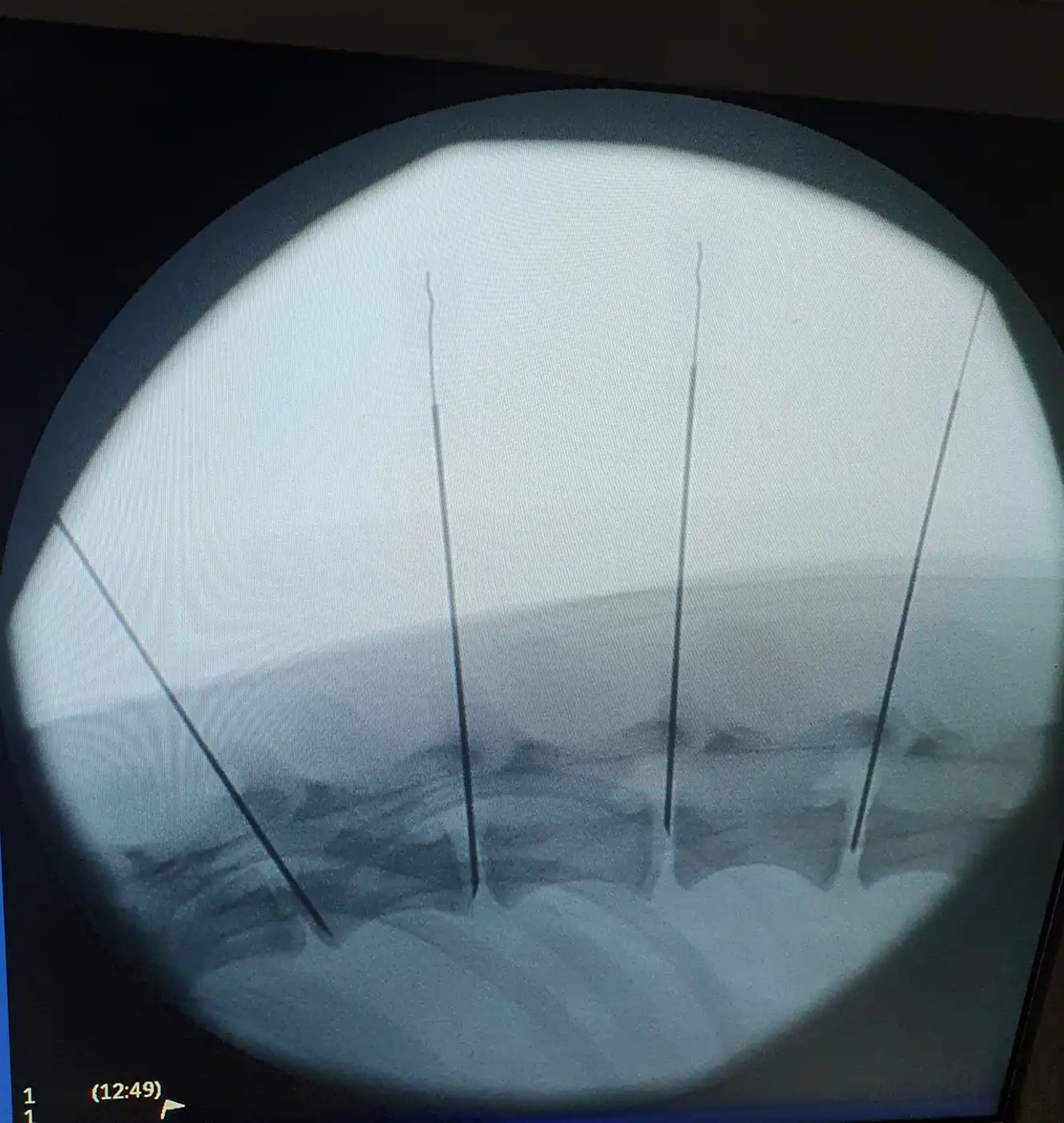7 Nov 2025
The injection offers a “significantly more affordable” alternative to open surgery.

Milo the dog with owner Lani Swart.
The University of Cambridge’s Queen’s Veterinary School Hospital (QVSH) has become the first in the UK to offer a pioneering, minimally invasive treatment for severe intervertebral disc disease (IVDD) in small dog breeds.
In collaboration with colleagues at Texas A&M University in the US, Cambridge scholars have co-developed a new enzyme injection with an “exceptional” success rate said to be much more affordable than spinal surgery.
The treatment, known as the percutaneous intra-discal chondroitinase injection, delivers an enzyme directly to damaged intervertebral discs to dissolve the central part of the spinal disc and relieve pressure on the spinal cord.
The two institutions conducted a clinical trial of the injection on 54 dogs rendered unable to walk due to IVDD and found similar success to those undergoing other forms of treatment.
Of the 41 dogs that had intact pain sensation at presentation, 38 recovered the ability to walk 50 steps unaided by a median of 11 days after treatment, while four of the 13 dogs that had absent pain sensation at presentation recovered by 20, 30, 61, and 110 days after disc injection.
The procedure has been recognised by the RCVS as routine veterinary practice and the QVSH began treating dogs with it earlier this year.
Of the 32 dogs treated there thus far, 24 are said to have fully recovered, four are awaiting treatment updates and four were unsuccessful due to the presence of potentially irreversible spinal cord injury at the time of treatment.
Paul Freeman, European specialist in veterinary neurology at the QVSH and lead investigator on the trial, said: “This is not a miracle cure, but it is an exciting new option for some dogs with severe spinal cord injury caused by a herniated disc.
“The injections are much less invasive than surgery and can offer similar outcomes for the right patients.”
Prof Freeman added: “Our aim is to give owners more choice, particularly where surgery may be difficult, and ultimately to help more dogs get back on their feet.”
IVDD is said to affect around a quarter of dachshunds in the UK and is also common in other short-legged dog breeds.
Charlotte Baldwin, founder of the UK charity Dedicated to Dachshunds, alerted pet owner Lani Swart to the treatment for her dog Milo, which began walking without falling a week after receiving the injection.
She said: “We’re thrilled to see the improvement in dogs like Milo following this new enzyme treatment.
“Being able to refer owners to a less invasive and more affordable option at Cambridge is hugely encouraging.
“This gives owners real choice in how they manage IVDD and offers many dogs the chance to regain their mobility.”
